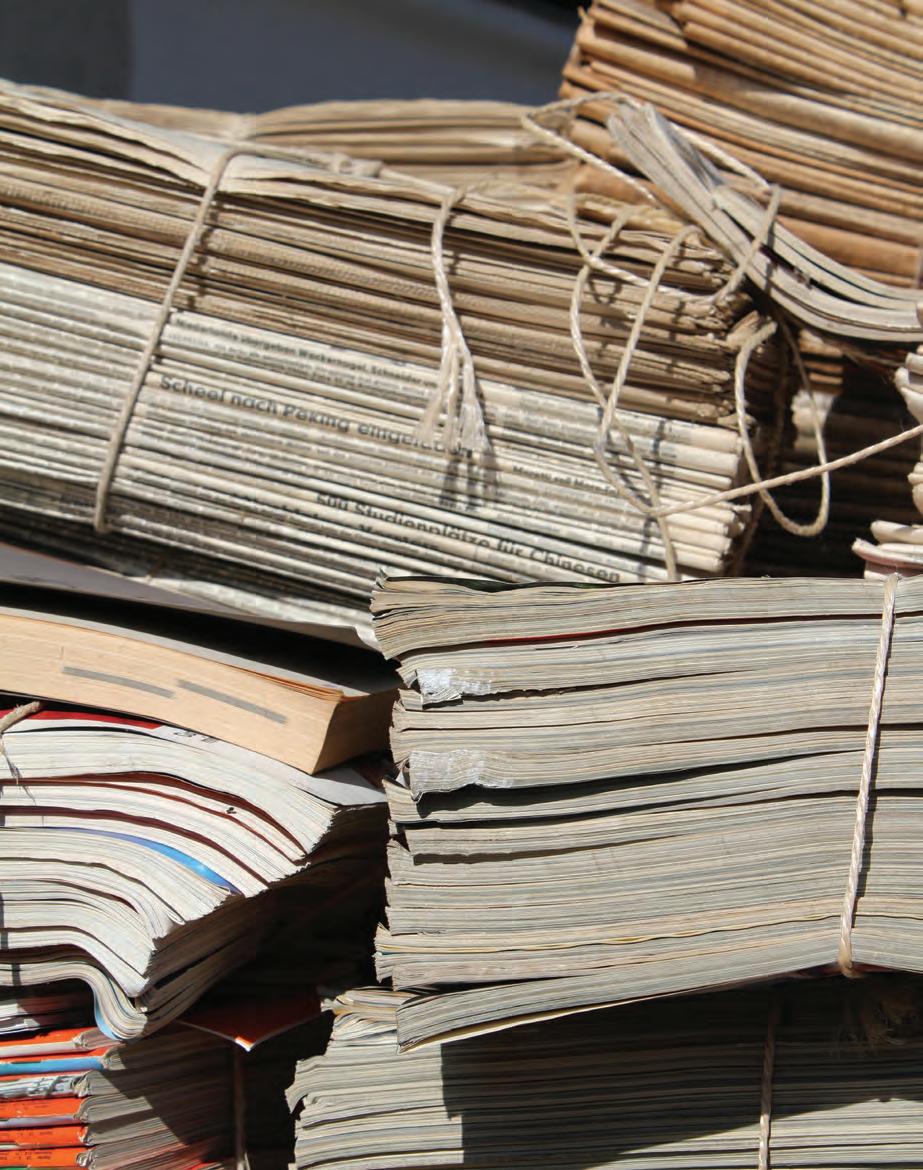
3 minute read
Keep Recycling -SA’s paper recycling rat is up
During 2020, South Africans recycled 1.1 million tonnes of paper and paper packaging, putting the country’s latest paper recovery rate at 73%, up from 68.5% in 2019. This is according to RecyclePaperZA, the paper recycling association, which states that South Africa has kept 19 million tonnes of paper out of landfills over the past 15 years, enough to cover 3 456 soccer fields. “This is a fantastic achievement, but there is always room for improvement. With more companies moving to paper packaging for their products, consumers need to play their part too,” says RecyclePaperZA general manager Anele Sololo. Sololo believes that Earth Day, on 22 April, is a good opportunity for citizens, schools and businesses to be more proactive in terms of waste and recycling. “Firstly, don’t drop or dump your rubbish. Keep your rubbish with you until you find a bin. Secondly, recycle in your homes, businesses and schools!”
Recycling, often termed ‘separation at source’, involves separating your wet waste from recyclables such as paper, paper packaging, plastic, glass, tin and even electronic waste so that these materials can be reprocessed into new products. “By recycling we not only reduce the burden on our landfills and support livelihoods, we are also more mindful of the waste we create and where it should be going,” notes Sololo. “In a world where packaging pollution clogs its waterways and rubbish lines the streets, recycling is something that citizens can do to bring about a cleaner South Africa.”
Advertisement
Sololo adds that her team has put together five tips to making more paper and paper packaging gets into the recycling loop:
1. If you are not already recycling, choose one material that you are going to start with
“Naturally, we want people to start with paper because it’s something we use every day,” says Sololo. Once you get the hang of it, start recycling plastic, glass or tin.
2. Keep paper products clean and dry by making a paper-only bin or box
Put this in an accessible place, preferably near your current rubbish bin. Space permitting, you may want to have a smaller paper-only bins around the house – kitchen, bathroom (for cosmetic boxes and toilet roll cores), garage, etc.
3. Know your recyclables
Recyclable paper products:
• Milk, beverage and food cartons (liquid board packaging) • Office paper (preferably not shredded), envelopes • Big brown cardboard boxes • Pizza boxes • Cereal boxes, cosmetic and medicine boxes, toilet roll cores • Books (if they can’t be donated or are obsolete) • Paper gift wrap • Paper cups • Magazines and brochures, including glossy varieties • Newspapers
Remember to remove any non-paper packaging (e.g., plastic windows) from the paper or cardboard. Not recyclable in the paper waste stream
Some paper products are not recyclable because of contamination, finishes – in the case of laminates and foils – or because we simply don’t have the appropriate processing facilities in South Africa. • Used paper plates, disposable nappies, tissues and toilet paper • Wax-coated, foil-lined or laminated boxes (unless stipulated) • Used cement bags • Used dog food bags • Foil gift wrapping • Carbon paper • Laminated paper • Backing paper from adhesive labels
• Support your neighbourhood waste collectors by leaving a separate bag of recyclables on rubbish day for them.
This will save them from having to dig through your smelly bin or bags, and help them to earn a little more. • Support a local school or community centre if they collect paper for fundraising. Check out Mpact Recycling’s paper bank network here. • Find a collection programme or drop-off point through MyWaste and
Treevolution.
5. Make sure everyone in your home knows what recycling is and how your system works
Recycling is a team effort so ensure the family, your domestic helper, friends and visitors know that you recycle and how it happens in your home or office. If you are having people over, keep two bins outside – one for waste and another for recyclables. So start making a difference for the sake of the environment and the livelihoods of others. Even a small family can make a big difference by recycling.










